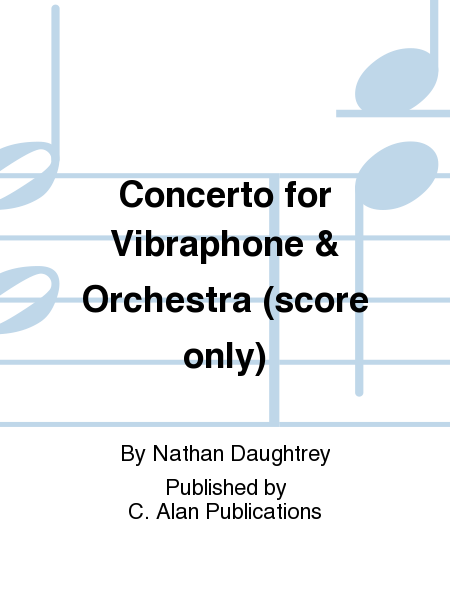Concerto for Vibraphone & Orchestra (score only)
-
Ships in 3 to 4 weeks
Details
Description
SKU: CN.17226
Composed by Nathan Daughtrey. Score. Duration 15:00. Published by C. Alan Publications (CN.17226).Concerto for Vibraphone was commissioned by Dr. Lisa Rogers, Professor of Percussion at Texas Tech University. The two-movement work draws inspiration from two opposing poems by Pablo Neruda that depict night and day. The poems are full of rich & vivid imagery that I tried to capture in the music.
Ode to Nighttime by Pablo Neruda
I. Night's Song – "El Canto de la Noche"
For the first movement, Night's Song, I tried to depict this mysterious, starry night that gradually turns dark and rainy. The phrases that really spoke to me and shaped the music were "behind daylight," "you thrash around the sky," "you run wild over the savage flow of rivers," and rain and darkness are the blade of a singing sword while stars, or jasmine petals, gaze from blackened heights." I love how Neruda describes daylight as being born nighttime, so I decided to make the movements attacca so that the second movement, Enchanted Light, bursts forth out of the first movement.
Ode to Enchanted Light by Pablo Neruda
II. Enchanted Light – "La Luz Encantada"
The second movement is much more sparkly and bright, depicting the "light dropping from the top of the sky." The "cicada sending its sawing song high into the empty air" even makes an appearance when the ensemble vibraphone player places pennies on the bars and then bows those bars with optional help from a sizzle cymbal. Motives and themes from the first movement return in several spots throughout the second movement helping to unify the work. The soloist gets a workout as well in the tour-de-force second movement, unlike the much more introspective first movement.

 Share
Share